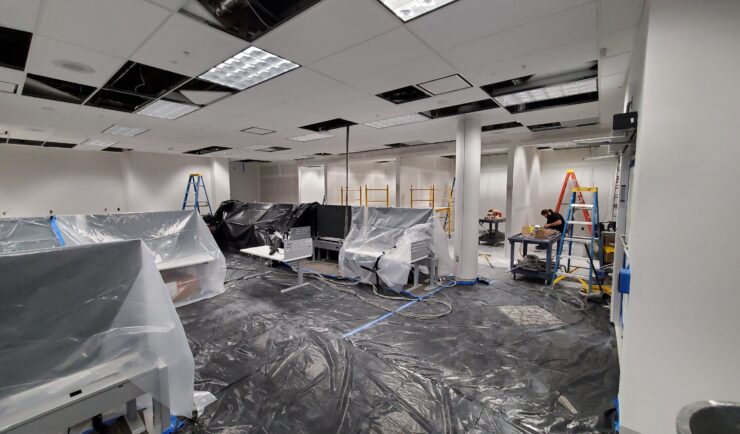- CSS News, Success Stories, Uncategorized
- Safety, Health, & Environmental Compliance
CSS Awarded Five Year Subcontract Supporting the Bureau of Engraving and Printing

For over 22 years, CSS has supported the Bureau of Engraving and Printing (BEP). Originally as a prime contractor, CSS began supporting BEP in 2002. In November 2024, a new prime contractor, Koniag, signed CSS as a major subcontractor, which enabled CSS employee owners to continue providing comprehensive environmental, occupational safety and industrial hygiene support to BEP’s Office of Environmental, Health and Safety.

CSS employee owners provide continuous comprehensive environmental, occupational safety, and industrial hygiene services for BEP employees. Specific services include
- Conducting safety and health inspections throughout BEP
- Investigating and documenting employee injuries, illnesses, near misses and incidents pertaining to indoor air quality, fire, and other emergencies
- Responding to chemical spills on evening and midnight shifts
- Issuing hot work permits and confined space entry permits
- Updating and maintaining Safety Data Sheets records
- Assisting with the planning, conducting, and evaluating evacuation drills
- Assisting with machine guarding assessments
- Maintaining a document filing system (both electronic and paper files) and performing other clerical functions
- Coordinating and conducting Environmental, Safety, Fire Prevention, and Health Training
- Assisting in the development and implementation of equipment-specific energy control procedures
- Providing technical consultation services including review of projects, documents, plans policies, procedures, guidelines, and handbooks
- Developing and implementing various policies, plans, procedures, and guidelines. This includes the BEP Environment, Health and Safety, and Emergency Medical Services manuals
- Conducting exposure monitoring to occupational stressors such as noise, dust, airborne chemicals, and non-ionizing radiation
- Conducting job safety analyses and related employee training
- Conducting powered industrial truck operator competency assessments
- Three employee owners support this contract: a technical safety lead, a safety specialist, and a staff person to conduct quality control reviews.
See More CSS Insights

Custom Support to Space Florida
Our team recently reconfigured the office space and network for an incoming Space Life Science Lab tenant, Vaxxinity. This work included major renovations to the lab and office space, and new cable runs for their modified space. The team completed this large task within a four week period! Our Florida IT group works closely with…

Contributing to Wind Energy Area Designations
The Bureau of Ocean Energy Management (BOEM) recently announced two Wind Energy Areas (WEAs) in the Gulf of Mexico. The WEAs are located off the coasts of Galveston, Texas, and Lake Charles, Louisiana and have the potential to power nearly three million homes. BOEM collaborated with the National Oceanic and Atmospheric Administration (NOAA) to identify…
New Data and Reports on the U.S. Marine Economy
Each year CSS economists on contract with NOAA’s Office for Coastal Management work with other federal agencies to process the most recent economic and labor data, and extract the portions related to marine-dependent sectors.
